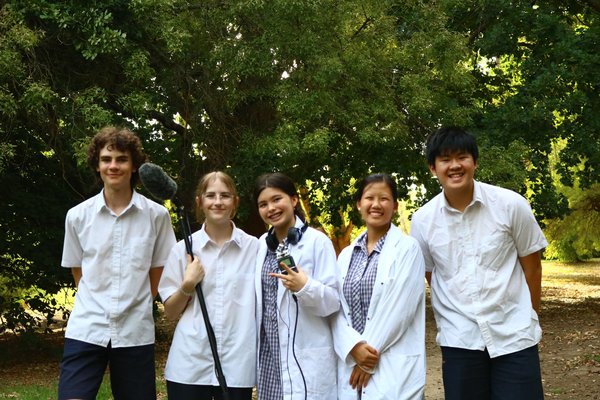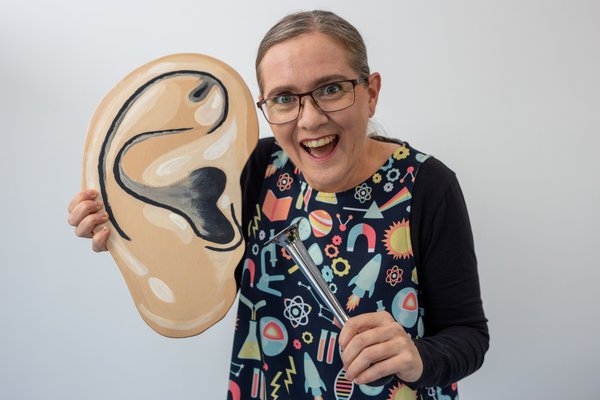Communicating science
Deborah Smith, from UNSW's Faculty of Science, spoke to Alex Danilatos about careers in science communication.

© Australian Museum
Alex: How did you come to science journalism?
Deborah: I fell into it! I did an honours degree in physical chemistry at the University of Sydney and then I became a scientist. I had always been interested in writing. So I went along and applied for a job as a science and education journalist. I had no qualifications in journalism . . . so I was lucky – I fell into it, but I don’t think that happens much anymore.
Alex: What have been the high and low points of your career?
Deborah: Probably one of my best stories was about the discovery of the ‘hobbit’, Homo floresiensis. It’s the story that won the Eureka Prize for Science Journalism in 2005 and it was about the discovery of the remains of an extinct species of human only about a metre tall who lived until about 17,000 years ago on the island of Flores in Indonesia.
The remains were discovered by an Australian and Indonesian team, and these little people, ‘the hobbits’, ate giant rats and pygmy elephants and fought off komodo dragons. So that’s a pretty interesting story!
But the low points are every time you make a mistake. There’s a saying in journalism: you’re only as good as your last story. And if you make a blooper in a story, everyone jumps on you and it’s incredibly embarrassing, and I’ve made a few.
Alex: What kind of job opportunities are there for people interested in science communication or science journalism?
Deborah: Science journalism is different from science communication. Science journalism is about journalism first and the topic just happens to be science. An important element of science journalism is to shine light into the dark corners, to find out what’s going on that people don’t want you to know about. And to discuss issues and canvass a variety of opinions, and also to entertain and inform the public.
The public pays for most scientific endeavour in this country, so there’s a moral obligation on scientists and scientific institutions to have an outreach program and let people know what they’re doing and what they’re finding. And also, if we have a more scientifically literate general public, then our democracy will work better.
Alex Danilatos, Communications Intern







